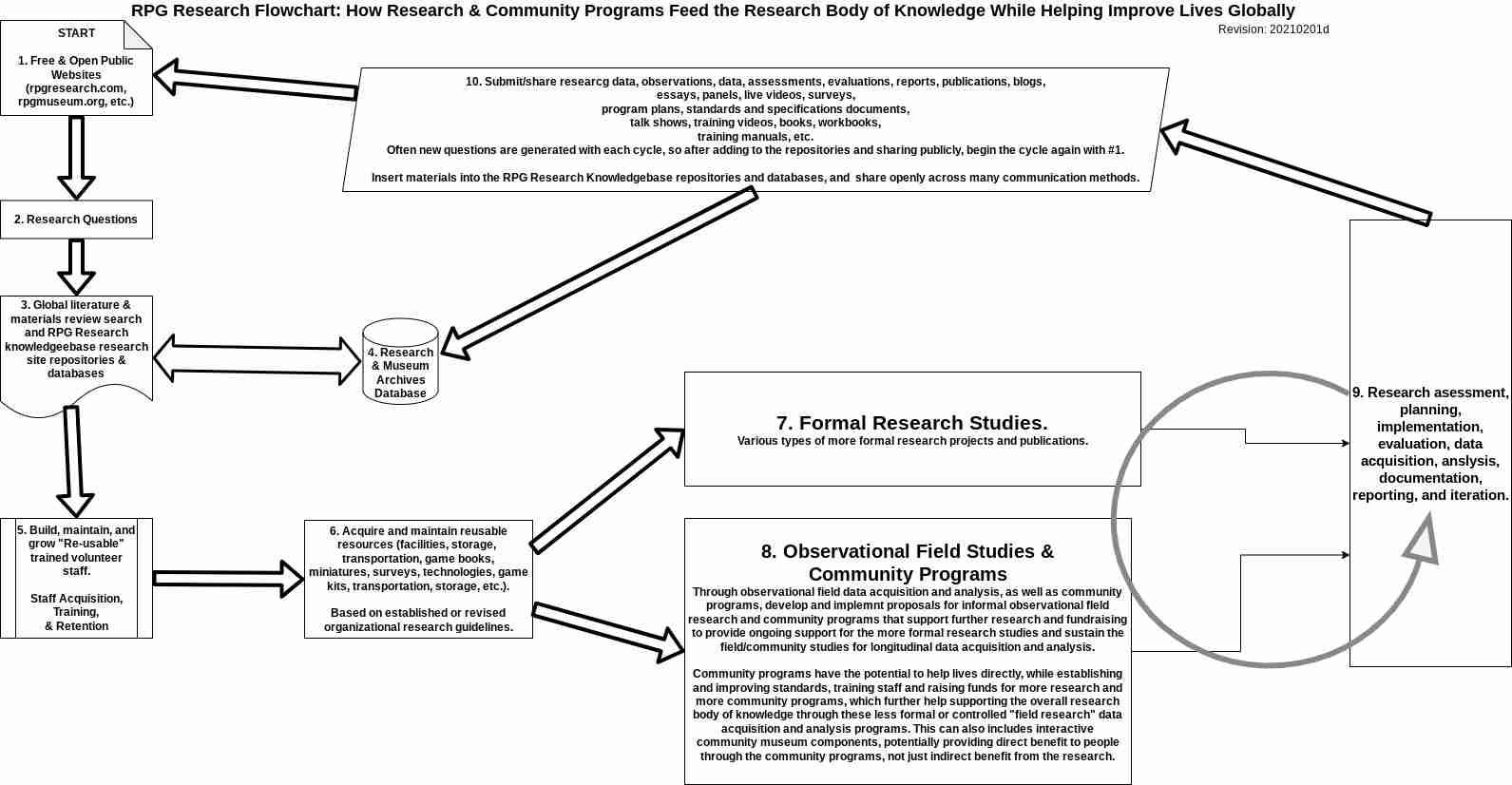RPG Research's Sustainable Longitudinal Research & Community Engagement Feedback Loop Basic Workflow

The 10 basic components of RPG Research's research and community feedback loop sustaining free and open research and community engagement.
Our "free and open" philosophies, methodologies, and 10 basic components of RPG Research's Workflow Feedback Loop have supported our longitudinally sustainable approach for decades:
It turns out RPG Research's decades-long philosophies and methodologies map well to the 2018 National Academies of Sciences, Engineering, and Medicine "Open Science by Design" approach. See the much more detailed version of this diagram.
The 10 basic components
- RPGResearch.com and RPGMuseum.org organization formation, revisions, and websites
- Research questions and updates
- Knowledgebase tool with current accumulated knowledge storage and retrieval data system
- RPG Research and RPG Museum physical archives and digital databases
- Volunteer staff acquisition, training, and sustaining
- Needed material resources acquisition, retention, and reuse
- Formal studies
- Field studies and community programs
- Research raw data accumulation, analysis, findings, corrections, iterations, reporting
- Free and open publication of all findings and (allowed) data, feeds back into #4, and the loop begins again at #1
The following diagram listed below provides a basic high-level overview of RPG Research's longitudinal research workflow feedback loop.